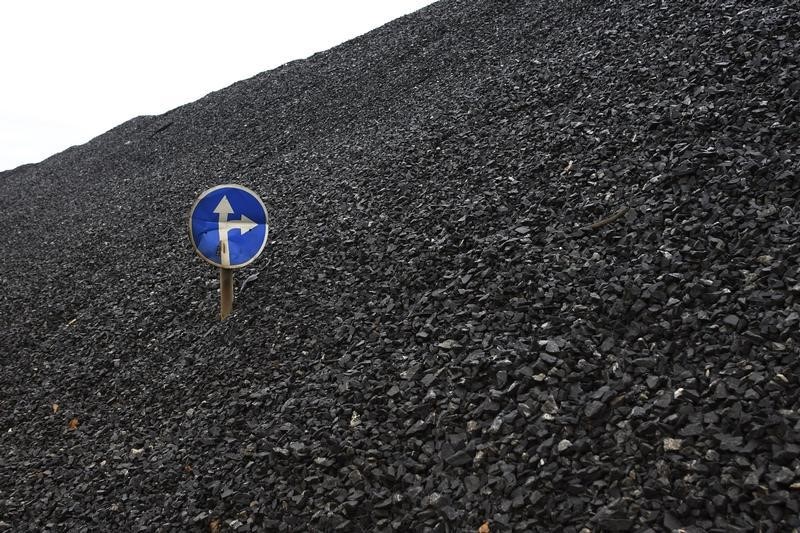* Miner cites demand uncertainties linked to climate change
* CEO expects weaker coal prices next year
By Barbara Lewis
LONDON, Nov 24 (Reuters) - Australia's South32 S32.AX , the mining company spun off from BHP Billiton, BLT.L BHP.AX in 2015, will avoid buying thermal coal because of uncertainties over demand linked to climate concerns, the company said on Thursday.
Forecasters such as the International Energy Agency have predicted that coal demand will peak by the middle of the next decade. But some analysts and miners question whether demand will peak as quickly as supply, which could push up prices.
South32 announced this month that it would pay $200 million to acquire Peabody Energy's BTUUQ.PK Metropolitan metallurgical mine in Australia, which produces coking coal used to make steel. Executive Graham Kerr said the company would make further acquisitions if they created value but would avoid thermal coal.
"Metallurgical (coking) coal is attractive long term," he said in a conference call with journalists. "Because of uncertainty around carbon prices, because of uncertainties around climate change, we're not going to buy or develop new energy (thermal) coal."
Prices for thermal coal, used for energy generation, have risen by about 100 percent this year while coking coal has surged by more than 200 percent because of Chinese demand and output reductions.
The world's biggest shipper of seaborne coal, Glencore GLEN.L , has said that coal continues to offer an investment opportunity. Kerr said that the price strength could continue a little longer, but he expects the market to weaken in 2017 for both coal types.
Negotiations on the Peabody purchase began before the price surge, though the deal included a mechanism to share out price gains between buyer and seller in the event of a strong coal market.
Peabody, the biggest U.S. coal miner, filed for bankruptcy protection in April after a sharp drop in coal prices left it unable to service its $10.1 billion of debt, much of it incurred for expansion in Australia.
It said on Wednesday that it is closer to exiting bankruptcy after this year's price increases.
